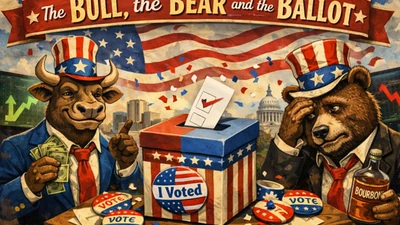Why Conservatives Are Watching Closely
The push to force a sale of TikTok by its Chinese parent company, ByteDance, is more than just a business story—it's a flashpoint in the broader battle over national security, digital sovereignty, and cultural influence. For many conservatives, it’s about time Washington took real action against foreign influence in the hands of an algorithm—and whether this sale results in genuine protection for American interests or more Big Tech theater remains to be seen.
The Backstory: Why Conservatives Have Sounded the Alarm
From the beginning, conservatives have been skeptical—not just of TikTok’s data practices, but of its deeper impact on American youth and culture. This isn’t just about who owns the app; it’s about who controls the narrative, the data, and the minds of an entire generation.
- National Security: TikTok collects massive amounts of data, and with ByteDance based in China, the CCP's access to that data is a legitimate threat. For conservatives, any Chinese control over American user data is unacceptable.
- Cultural Concerns: TikTok’s algorithm doesn’t just entertain—it shapes opinions, fuels trends, and often rewards content that undermines traditional values, glorifies dysfunction, or promotes ideological agendas.
- Free Market ≠ Open Borders: While conservatives typically support free markets, there’s a strong belief that economic freedom must not come at the cost of national independence or security. TikTok has blurred those lines.
The Expected Outcome: Best-Case, Worst-Case, and Likely Scenarios
Best-Case Scenario: Full U.S. Ownership, Real Oversight
Conservative leaders and commentators are hoping for a clean break—TikTok sold to an American-owned and operated company with clear oversight, transparent algorithms, and a firewall between U.S. data and any foreign entities.
This would not only neutralize the national security threat but also put pressure on other tech platforms to rein in bias, misinformation, and anti-American narratives.
Worst-Case Scenario: Cosmetic Change, Same CCP Control
There’s real concern that the sale could be a shell game—where a U.S. buyer gets limited operational control, while ByteDance retains influence through minority stakes, board representation, or back-end access.
That would be a public relations win for Washington but a strategic loss for American sovereignty. A half-hearted divestment may be worse than none at all, as it gives the illusion of safety while leaving the core problem untouched.
Likely Scenario: Legal Delays and Lobbyist Games
Expect court battles, lobbying, and Big Tech backroom deals to stall the sale. TikTok, after all, has become a billion-dollar giant with deep influence and deep pockets. Conservative lawmakers pushing for the sale (or an outright ban) may face resistance not just from TikTok itself, but from corporate allies who profit from the platform’s ad power and reach.
- True U.S. control—no backdoors, no board games.
- Algorithm transparency and content oversight.
- Stronger precedent for how we deal with other foreign apps.
- A win that signals: U.S. security > foreign profits.
The Bottom Line: TikTok’s Future Is America’s Signal to the World
If the U.S. government forces a meaningful sale of TikTok and puts the platform under secure, American control, it sends a loud message: the days of unchecked foreign influence are over. If not? It’s another example of big talk and small action.
For conservative Americans who believe in secure borders, free minds, and strong institutions, this fight isn’t about dance videos—it’s about drawing a line in the digital sand.










